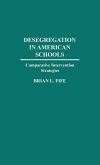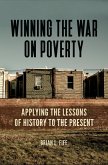
Gebundenes Buch
Comparative Intervention Strategies
20. Mai 1992
Praeger

28,95 €
Sofort per Download lieferbar
eBook, PDF
12. April 2018
Bloomsbury Publishing Inc
| Gebundenes Buch | 81,99 € | |
| eBook, ePUB | 28,95 € |
28,95 €
Sofort per Download lieferbar
eBook, ePUB
16. Juni 2010
Bloomsbury Publishing Inc
| Gebundenes Buch | 80,99 € | |
| eBook, PDF | 52,95 € |
eBook, ePUB
12. August 2013
Bloomsbury Publishing Inc
| Gebundenes Buch | 81,99 € | |
| eBook, PDF | 52,95 € |
eBook, PDF
16. Juni 2010
Bloomsbury Publishing Inc
Ähnlichkeitssuche: Fact®Finder von OMIKRON
